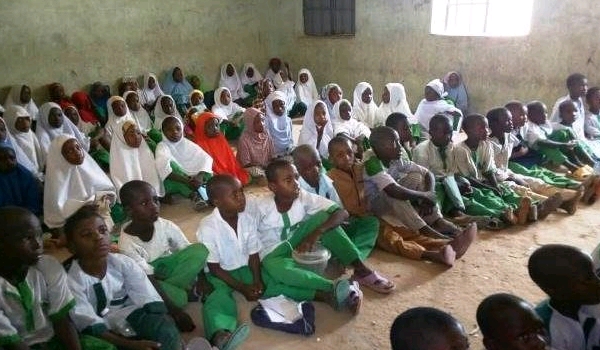Metro
World Book Day: Foundation condemns poor reading culture in Nigeria

As the world celebrates World Book Day, a Lagos-based non-profit organization, Lead-out Education Foundation, has decried the poor reading culture among Nigerians, advocating for a change of the negative reality.
World Book Day is celebrated on April 23 annually.
The founder, Irene Udosen, noted that Nigeria was rated by the World Culture Score Index as one of the countries in the world that has the lowest reading culture in 2017.
She therefore urged that Nigerians take advantage of World Book Day, which is a global initiative to celebrate reading and books.
During an event organized by the foundation in partnership with Nosak Group, themed “The Value For the Book,” books were donated to over 100 students in Lagos, as a way of promoting, and reviving reading culture in Nigeria.
READ ALSO: Omotola And Our “Hellish” Country!
While giving an assessment of the reading culture in Nigeria, Udosen described it as frail stating that the current reality is as result of society’s derailment from emphasizing the value for the books to emphasizing certificate and materialism, and connections.
“So, students have now adjusted to what seems to be most important to society rather than what will matter for productivity. ‘Why study when it won’t matter at the end’ is the mind-set! Though, it back fires at the end. Unqualified graduates and misfits are the result,” she said.
Commenting on the solution to challenges in the education sector, she stated that there has to be a well-defined philosophy of education so that everyone understands it direction, and that government must make education a priority and not just engage consistent change of policies that deteriorates and distort the system.
“Our educational processes must be well directed and monitored. Also, teachers training must be a priority as consistent training is necessary to enable them keep up with standard.
“Furthermore, learning aids not, just at basic level, but across all levels must be upgraded constantly. What was used to teach children ten years ago can’t serve this generation,” she said, adding that students need reorientation.
“They need to see how the curriculum connects to future aspirations. They need to be reminded about the significance of knowledge because this is one key area that is almost forgotten. Our students need to be helped to see hope for a bright future that links with the education they receive.”
On his part, the Corporate Communications Manager, Nosak Group, Kenneth Adejumoh said, “There is so much decline in our reading culture today.
“Although the advent of technology has made it easy, and more interesting to read, many students are not utilising technology much. They would rather play video games than read a book on their gadgets.
“So it is important to find ways on how to improve reading, and inculcate reading culture in the younger generation.
“For students to begin appreciating reading culture, they first need to understand the value of reading. Parents and teachers should be deliberate in ensuring that students engage in reading.
“Government should reintroduce public libraries, and a strong library culture in schools. The ministry of education should reintroduce the library system into the public space and in schools. And Libraries should be one of the criteria for accrediting schools,” Adejumoh said.
“Let’s bring up policies that resurrect the standards of education. There should be constant retraining of teachers so that they will appreciate the trends in education, we can’t be teaching with the curricula of 9180. It can’t work because things have evolved,” he adds.
Join the conversation
Support Ripples Nigeria, hold up solutions journalism
Balanced, fearless journalism driven by data comes at huge financial costs.
As a media platform, we hold leadership accountable and will not trade the right to press freedom and free speech for a piece of cake.
If you like what we do, and are ready to uphold solutions journalism, kindly donate to the Ripples Nigeria cause.
Your support would help to ensure that citizens and institutions continue to have free access to credible and reliable information for societal development.












